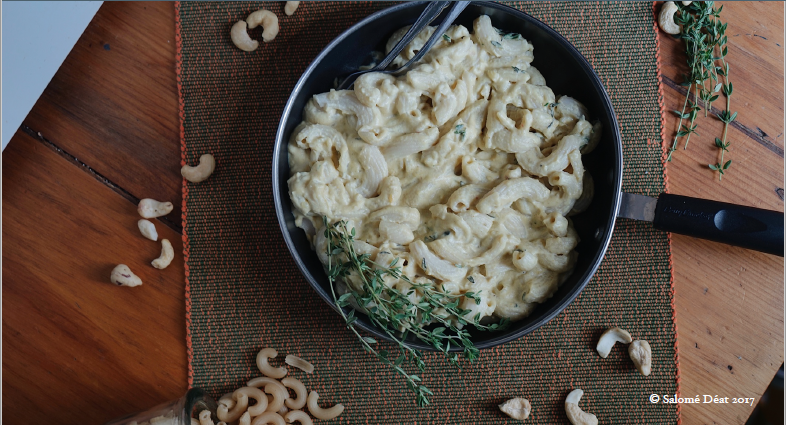If you’re the parent of a teen, it’s likely that food and/or nutrition have been issues at some point.
The need for your teen to assert themselves as individuals, mixed with food aversions, as well as an increased awareness of where their food comes from, how it got to the table, and what effect it has on their bodies…
Well, all that can make for, at the very least, colorful conversations, or at worst, ugly confrontations at the dinner table.
I’ve got two teenage girls at home, and thanks to acne, premenstrual bloating, stress, and a disgust for all foods natural, there have been more than a few heated, food-centered discussions.
But what if the issue is that your teen wants to go vegetarian… or worse, vegan?
This may sound alarming to you.
Maybe it seems extreme, especially if you were raised like I was, on a diet of meat and potatoes (or spaghetti and meatballs).
I get it. The whole idea used to alarm me too. Because, after all…
“Where will they get their protein?!”
But then, five years ago, I became vegetarian.
And I discovered that it’s not that hard to get protein because protein exists in everything that grows. Even fruits and vegetables.
Yes, I eat a bit differently as I’ve learned more about this lifestyle.
So, I take in more legumes and tofu for protein than I ever did before, and I’m more conscious about eating those leafy greens to get my calcium, and eating eggs to get my vitamin B12.
But for teens going vegetarian, I believe the biggest concern is that they don’t know enough about this lifestyle when they begin.
And then, when they feel hungry, they’re be more likely to fill up on what’s easy. Like packaged foods.
Because, after all, chips, popcorn, cookies, cake, chocolate bars, soda pop, and juices are all “vegetarian”, right?
Without guidance, your teen may make less than optimal choices, and that may lead to nutrient-deficiencies down the road.
So, that being said, how can you best guide your teen when they choose to go meatless?
To help me answer this question, I consulted with friend, vegan, and fellow health coach, Salomé Déat.
When Salomé was a teenager, she went vegan progressively.
She first became pescetarian at 17 (meaning vegetarian plus fish and seafood), then became fully vegetarian (no more fish and seafood) a year later, and finally went fully vegan (no animal products at all) about two years after that.
Now, at 22 years old, Salomé is helping other young people who want to make their own transition, in the name of better health, or animal and planet welfare, or both.
When I asked her for her best advice to teens (and parents of teens), who wish to move towards a vegetarian lifestyle, here’s what she recommended:
Eat the rainbow
(And btw, this does not mean eating Skittles.)
This means eating a balanced and colourful diet. The more vibrant and healthy and alive your food, the more vibrant and healthy and alive you’ll be.
In fact, nature created fruits and vegetables to be colourful so that they would look appetizing. It works!
To help your teen get a variety of these natural gems, try taking them to a local farmer’s market and have them choose what they’d like to try, as well as pick things they already know they enjoy.
Then use these gorgeous foods in smoothies, salads, home-made popsicles, and just on their own as snacks, with or without dip.
Experiment in the kitchen
Get your teen to Google recipes made with vegetables, grains, beans, and nuts. Have them discover fun things they can make that you may never have even thought of.
Then let them prepare the foods.
Have them be the chef and take ownership of their chosen lifestyle. Encourage them by giving them space to experiment, and by trying the recipes they create.
They’ll discover what works and what doesn’t while having fun!
Be generous with quantities
Plant-based foods are naturally less calorie-dense than animal products, so your teen will need to eat a bit more of them to keep them satisfied throughout the day.
Teach your teen to trust their body signals. If they feel full or close to it, then they’ve eaten enough. If they’re hungry, they should eat a bit more.
It sounds basic, but so many adults are out of sync or ignore their own body signals.
So be generous with good foods, but trust the body to tell you when it’s had enough.
Get educated
Encourage your teen to seek out educational content on the internet (YouTube videos, articles, …) about plant-based diets so that they have an idea of the benefits of this lifestyle.
Based on a bit of my own research, some of the great benefits for teens who choose to eat a healthy, balanced, plant-based diet are:
- Clearer, less acne-prone skin
- Lessening of PMS symptoms like cramps and water retention
- Better weight control
- Increased self-esteem as they make conscious choices in favor something they believe in…
But there are also some things to be aware of like:
- Getting enough vitamins and minerals like vitamin B12 (vegans may need a daily supplement), vitamin D (may need a supplement especially in winter months), calcium, and iodine
- And eating a variety of whole foods to get a good balance of the 3 major nutrients: Protein, fats, and carbohydrates
And if you’re stumped at where you and your teen should begin looking, here are a few great articles/sites to get started with:
Precision Nutrition: All About Plant-Based Diets: http://www.precisionnutrition.com/all-about-pbd
Globe and Mail: https://www.theglobeandmail.com/life/health-and-fitness/ask-a-health-expert/is-it-safe-for-my-teen-daughter-to-become-a-vegan/article15209460/
KidzWorld: http://www.kidzworld.com/article/3002-becoming-a-teen-vegetarian
Teen Vogue: http://www.teenvogue.com/story/vegetarian
TeenVgn: The Social Network for Young Vegetarians and Vegans: http://www.teenvgn.com/
Now, hopefully this blog has given you a place to start for you and your teen.
But I want to take you a step further.
I was lucky enough to have Salomé share her new eBook with us which contains 5 vegetarian/vegan recipes that are teen-friendly. And the photos are so beautiful, they themselves look good enough to eat!
She calls her eBook Fall in Love With Plants and you can get it by simply clicking on the link and entering your email address so we can send it to you.
And if you’d like to contact Salomé, and find out more about what she does and how she can help you or your teen, you can reach her at: salome.deat@gmail.com
Keep moving forward, my friend,
Debbie
P.S. I’ll be doing an interview with Salomé this coming Monday, you’ll be able to watch it on my Facebook page. Stay tuned!
P.P.S. Summer classes are starting soon! Boot Camp begins June 12th, and Thursday evening Yoga on June 15th (outdoor Yoga starts June 27th).




Great article Debbie! Thank you for exploring this subject so that we can all approach this topic with a little more wisdom. Namaste, Maria
Namaste Maria